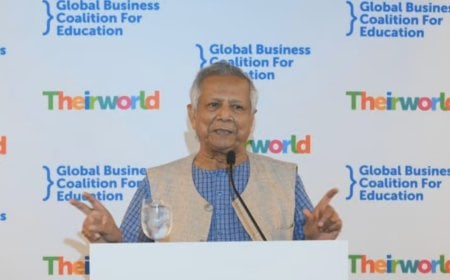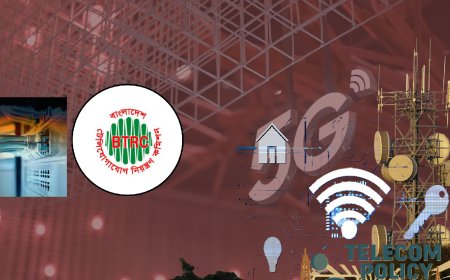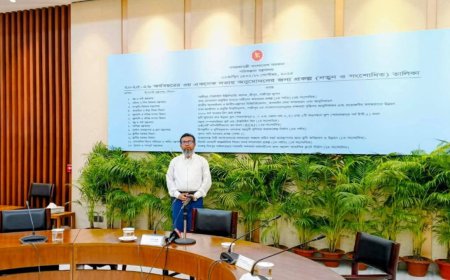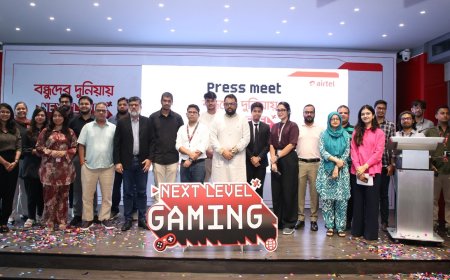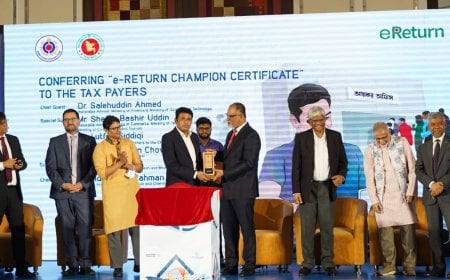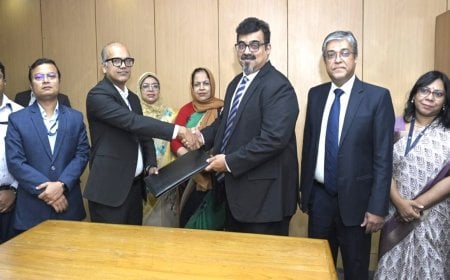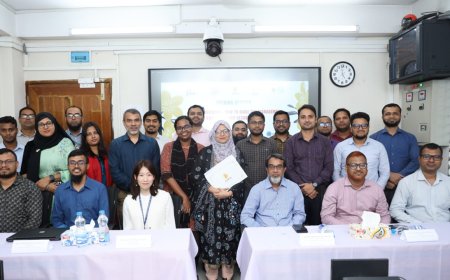Dr. Muhammad Yunus Urged Youth to Unite Technology and Social Business at UN Headquarters
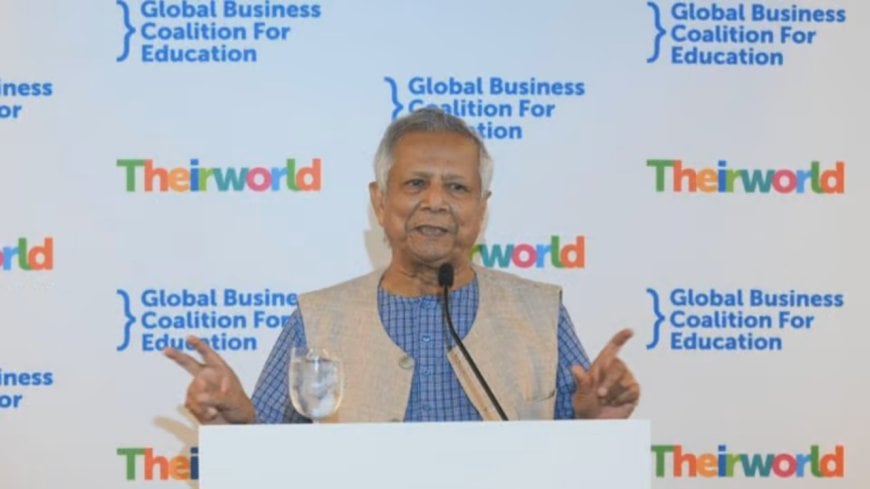
Chief Adviser Dr. Muhammad Yunus has called on the younger generation to focus on technology and social business, describing them as the “principal architects of a new civilization.” He urged youth to harness their limitless imagination, saying, “We are standing at the doorstep of a new technological era—where artificial intelligence, big data, renewable energy, and other transformative innovations exist. These tools can reshape the structure of industry, society, and human progress. If used responsibly, technologies such as artificial intelligence, blockchain, and the Internet of Things can greatly accelerate the path toward sustainable development. From digital health and education to renewable energy and even sports, they can bring about a revolution.”
Dr. Yunus delivered these remarks at a high-level side event on “Social Business, Youth, and Technology” at the United Nations Headquarters.
Highlighting the pressing challenges faced by many nations, especially Bangladesh, he noted: “Bangladesh is preparing to graduate from LDC status while simultaneously hosting 1.3 million forcibly displaced Rohingya, facing recurrent climate disasters, and surviving amidst global economic turbulence. In such a context, reducing the UN budget or cutting official development assistance will be counterproductive. Instead, the world must increase international aid, provide technological assistance, and ensure a just transition for vulnerable countries.” He stressed that solving such crises cannot come from “empty diplomatic talk” but requires transforming the global economic system, which he criticized for prioritizing profit over people.
He further argued: “This new economy will prioritize human welfare, social justice, and environmental protection—not just wealth accumulation. It is not an imagined dream but a necessary evolution. At the heart of this new economy is social business. Social business is not a small idea but a fundamental principle. Business exists not just for profit, but for change. From a one-dollar loan, it has grown into a global movement. Whether in healthcare, renewable energy, education, or sports—social business is proving that it is possible to tackle the world’s toughest challenges while remaining economically viable.”
Warning against the destructive trajectory of current civilization, Dr. Yunus said: “Our present path of limitless consumption, extraction, and accumulation is pushing our planet to the brink. We must build a new civilization—one driven not by greed but by collective commitment to solving the problems of people and nature. In this new world, wealth must be shared, not concentrated. Business must be redefined—not as a vehicle for personal profit but as an engine for social welfare. And the primary architects of this new civilization will be today’s youth.”
He added: “Earlier generations were shaped by the old system. Today’s youth see not only what is but also what could be. Their imagination is boundless. I often say: ‘Where imagination leads, innovation follows.’ That is why the imagination and creativity of youth must be channeled into social business—to create sustainable solutions for climate change, unemployment, poverty, and inequality.”
Dr. Yunus emphasized that regardless of his role or position, his mission remains unchanged: “to build a world that guarantees opportunity, dignity, and sustainability for all. Titles may change, but the purpose remains the same—to create a world where business works not just for profit, but for people, for the planet, and for our shared future.”
Addressing the global crises of climate change, inequality, and conflict, he said: “The wildfires of climate change are burning our planet. Inequality is deepening. Conflicts are raging everywhere, testing our very humanity. These crises are not separate; they are interlinked—like threads in a fragile tapestry that tug at each other and affect our very existence. But we must remember, the power to mend this tapestry does not lie in the past, it hides in the future we dare to imagine—and in the choices we make today, right here.”
Concluding on a note of hope, he declared: “The path to a better world cannot be measured by yesterday’s failures. Let us become the architects of a new wave, building a world based on justice, sustainable development, and hope. A world where our shared dreams bring a new dawn for humanity.”
